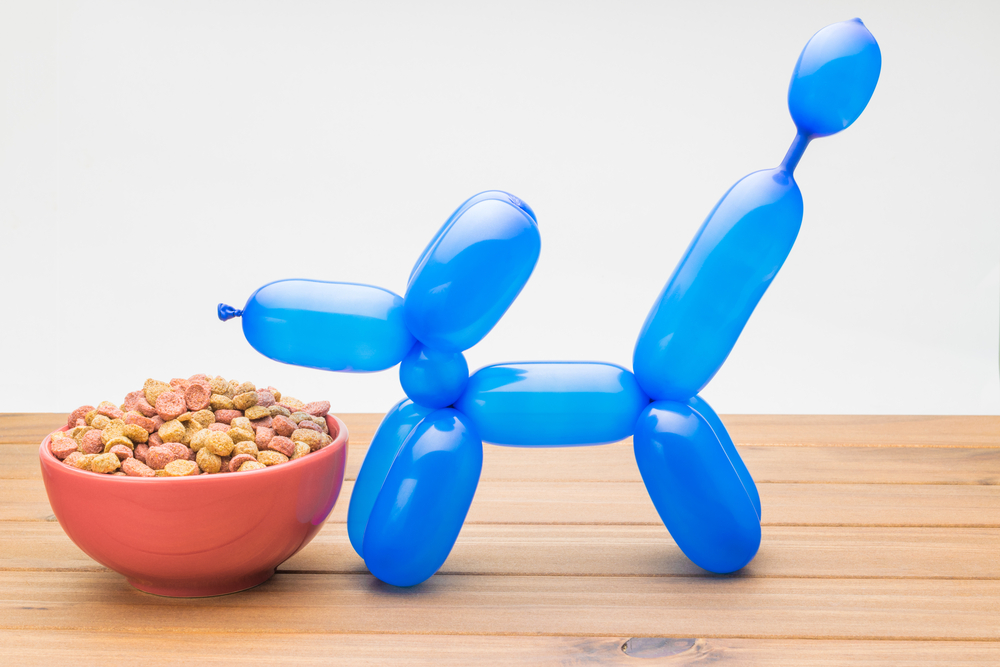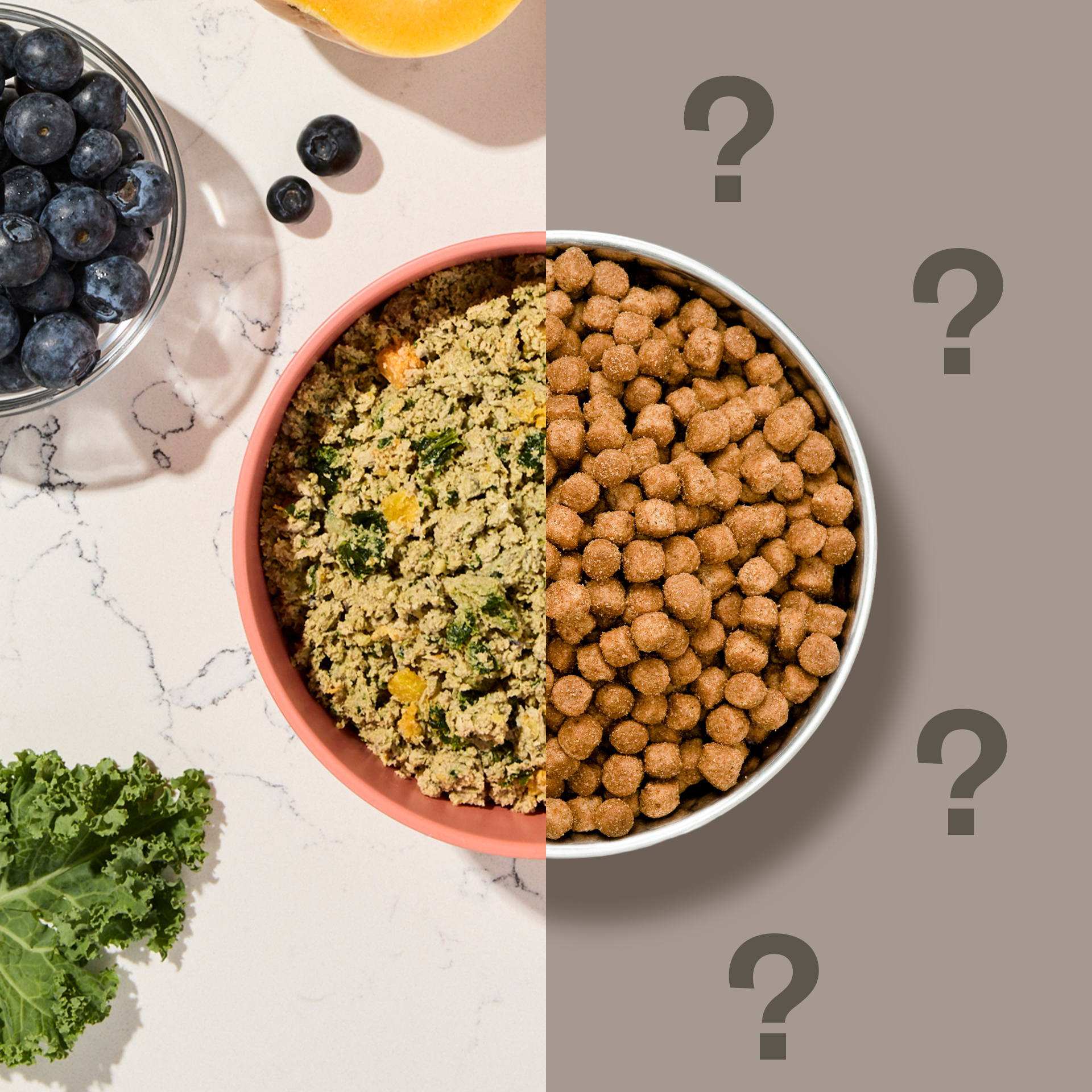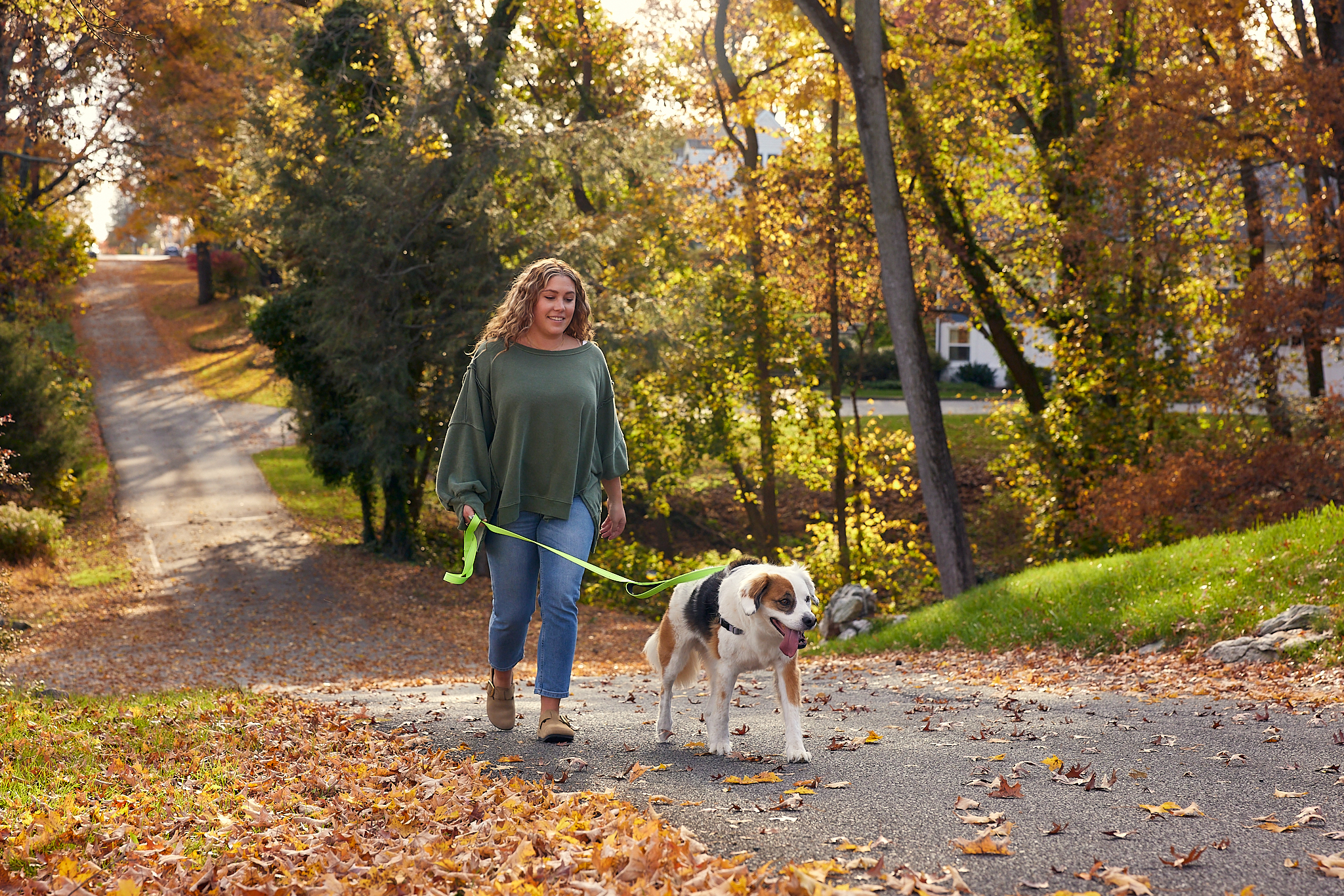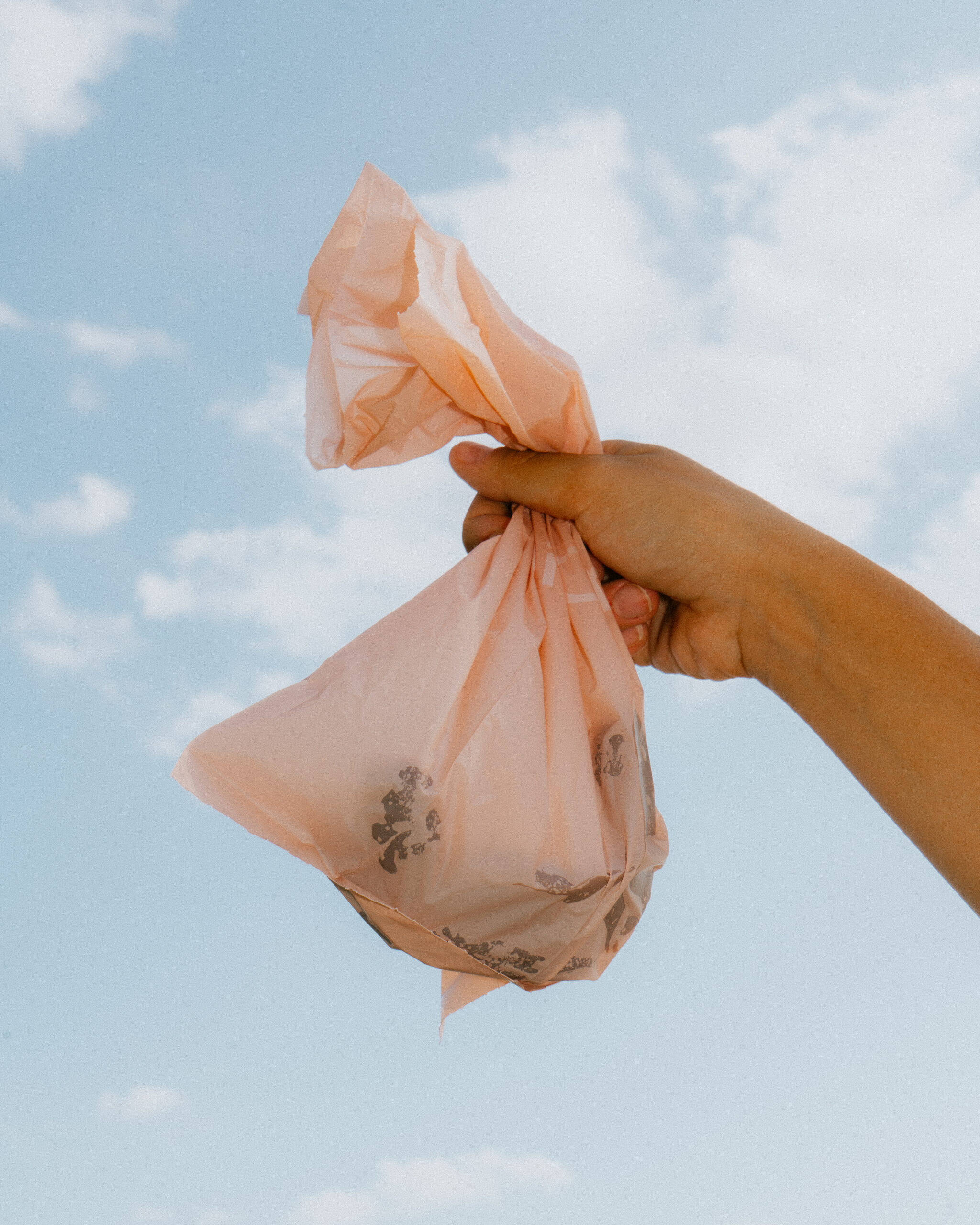Hey Ollie blog readers! We’re offering you an exclusive 60% OFF your starter box! Try now!
What does Bloating mean?
Bloat in dogs is the layman’s term for two different medical conditions. The first of which, Gastric Dilation (GD) is when a dog’s stomach fills with gas and Gastric Dilatation and Volvulus (GDV) where the gas-filled stomach twists on itself. Both of these conditions can be deadly for dogs and will require medical intervention.
Causes of bloat in dogs
The exact cause of bloat is not known. Some dog breeds are more prone to bloat than others. Large breeds like St. Bernards and Great Danes are more prone to bloat. This does not mean your small dog like a pug or chihuahua is immune from the condition. Other risk factors for bloat are eating and drinking too quickly, and then being very active.
3 tips to prevent bloat in your dog
While there is no known cause of bloat, there are some things that you can do proactively to minimize your pet’s risk of being impacted by this condition:
1. Feed your pet small meals more than once per day.
If you know your pet needs to eat 2 cups of food per day try to split the food into 3 meals. If you pet is known to eat too quickly you can also try using a special bowl called a slow feeder or puzzle feeder. These dishes cause your pet to work for their food and so they have to eat more slowly.
2. Don’t feed your dog before participating in vigorous activity.
If you are planning to take your dog somewhere very exciting like the dog park or swimming, be sure to feed at least one hour before you do so. Stress and anxiety can also contribute to bloat. Try to make sure your pet is happy and relaxed at mealtimes.
3. Make sure your pet has had a chance to cool down after extreme excitement or exercise.
Offer small sips of water and let them cool down before eating. Although ice water has not been proven to cause bloat, drinking too quickly after strenuous exercise can.
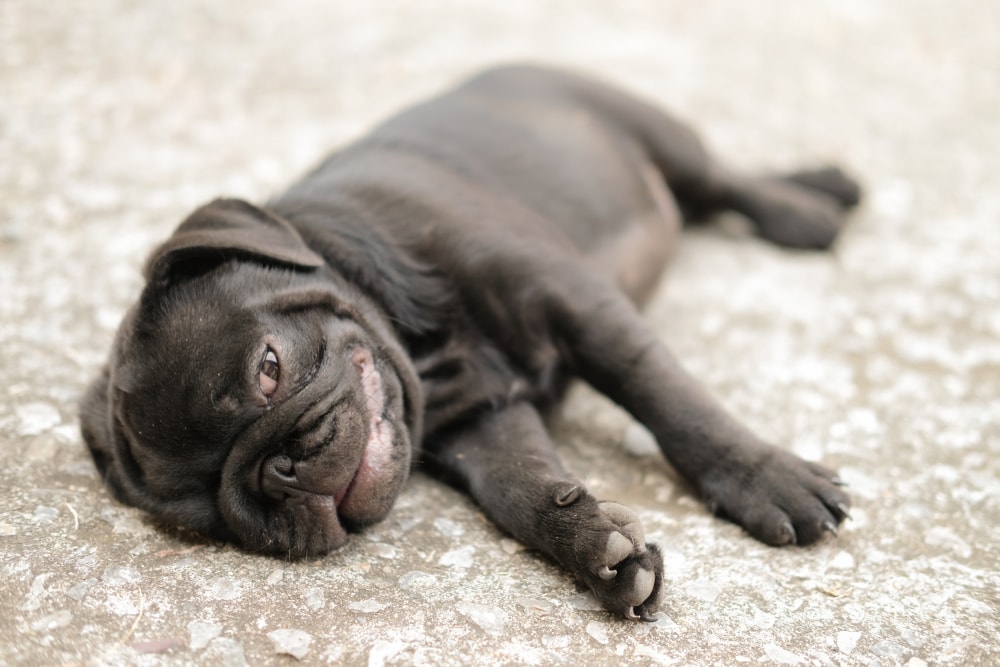
What are the symptoms of bloat in dogs?
- Hard, swollen stomach: Depending on the size and breed of your pet, the bloat may or may not be visible. If you suspect bloat be sure to feel your pet’s stomach and ask your vet to do an exam. Bloat is a painful condition for your pet, they may yelp or cry when their abdomen is palpated if they have bloat.
- Drooling or panting: If you pet has bloat they may drool and pant or walk around to try to relieve the pain.
- Whining or crying: Some dogs with bloat will whine or cry to let you know they are in pain. This may also present as agitation caused by the discomfort. If you see this in your pet you’ll want to rule out bloat as the cause of your pet’s pain.
- Trouble breathing: If your dog experiences bloat his stomach that is now filled with gas can press on his diaphragm and cause issues with breathing. Your pet may also be experiencing hiccups as they are a spasm of the diaphragm.
Treatment for bloat
If you suspect that your dog has bloat you should treat it as a medical emergency. There are no treatments for bloat that you can perform in your own home and your dog needs to be seen by a veterinarian. If it is after hours you should not wait till morning and take your dog to the nearest emergency facility. Bloat can be deadly in as little as two hours this is especially true of GDV. Most emergency facilities will coordinate care with your pet’s primary care doctor for any follow up needs. You may want to proactively get a recommendation from your pet’s doctor for where to take them if an emergency need comes up (after hours, holidays etc.).
The vet will perform an exam including X-rays and blood work to confirm the diagnosis. The treatment for bloat is a stomach pump to relieve the gas and if the stomach is twisted, surgery to untwist the stomach.
In some cases of bloat the pancreas and spleen are also affected and additional surgical intervention is required. When the pancreas is deprived of oxygen it can produce toxic hormones which can also be fatal. This makes bloat a complicated disease to treat.
If your pet’s stomach has twisted, the surgeon will potentially perform a procedure called gastropexy, where the stomach is sutured to the body wall to prevent it from twisting again.
In some dogs that are prone to bloat, your vet may recommend doing this procedure proactively when your dog is being spayed or neutered. This will reduce the chance of your pet getting bloat in the first place and since your dog is already going under anesthesia for the spay/neuter surgery it saves them from needing to be put under a second time.
The gastropexy procedure does not 100% eliminate the risk of bloating again, however after the procedure the stomach can’t twist which makes the treatment for any bloating that does occur less complex.
As with any surgical procedure you’ll want to follow the vet’s post operative instructions carefully to minimize the risk of additional complications. This can include keeping your pet from licking the incision sites, keeping them clean and dry, and keeping your pet from running, jumping and playing too vigorously. Your pet will also likely be sent home with some medication including pain medicine and antibiotics to prevent infection. These medications may need to be taken with food and water. You might also get instructions about modifying your pet’s diet to prevent further complications this may be short term as your pet heals or long term to prevent further issues with your pet’s stomach.
Myths about bloat
There is a popular social media myth that bloat is caused by providing ice water when your pet is overheated. This has been debunked by many veterinary professionals.
Other myths about bloat include that it is caused by food bowls placed on the ground. This has not been proven as raised feeders also cause a bloat risk.
Finally, there is some information about certain foods or ingredients making dogs prone to bloat. There is not enough evidence to support this claim either.
The Ollie blog is devoted to helping pet parents lead healthier lives with their pups. If you want to learn more about our fresh, human-grade food, check out MyOllie.com.
Tagged As:

The nutrition your dog needs,
the food they want.

Enjoying our articles? Subscribe our Newsletters and get new articles directly to your inbox
You might also like
11 August 2025
5 MINS READ
Not all Processing Is Equal: What’s Really in Your Pet’s Bowl?
As pet parents, we know how important it is that our dogs live long, healthy, and happy lives. This is why at Ollie, we focus so much on what goes into their bowls. But did you know there may be s…
31 July 2025
4 MINS READ
The Healthiest US States for Dogs
The Ollie Health team, a team of veterinarians and veterinary technicians, reviews thousands of photos submitted through Ollie’s Health Screening service. That’s hundreds of dogs (and their st…
by Ollie Pets
30 July 2025
3 MINS READ
The Poop Scoop: Your Dog Digestion Questions Answered
As pup parents, we spend a lot of time handling dog poop, and as a key indicator of a dog’s health, it’s only fitting that we think and talk about it just as much. Unfortunately, what happens …
